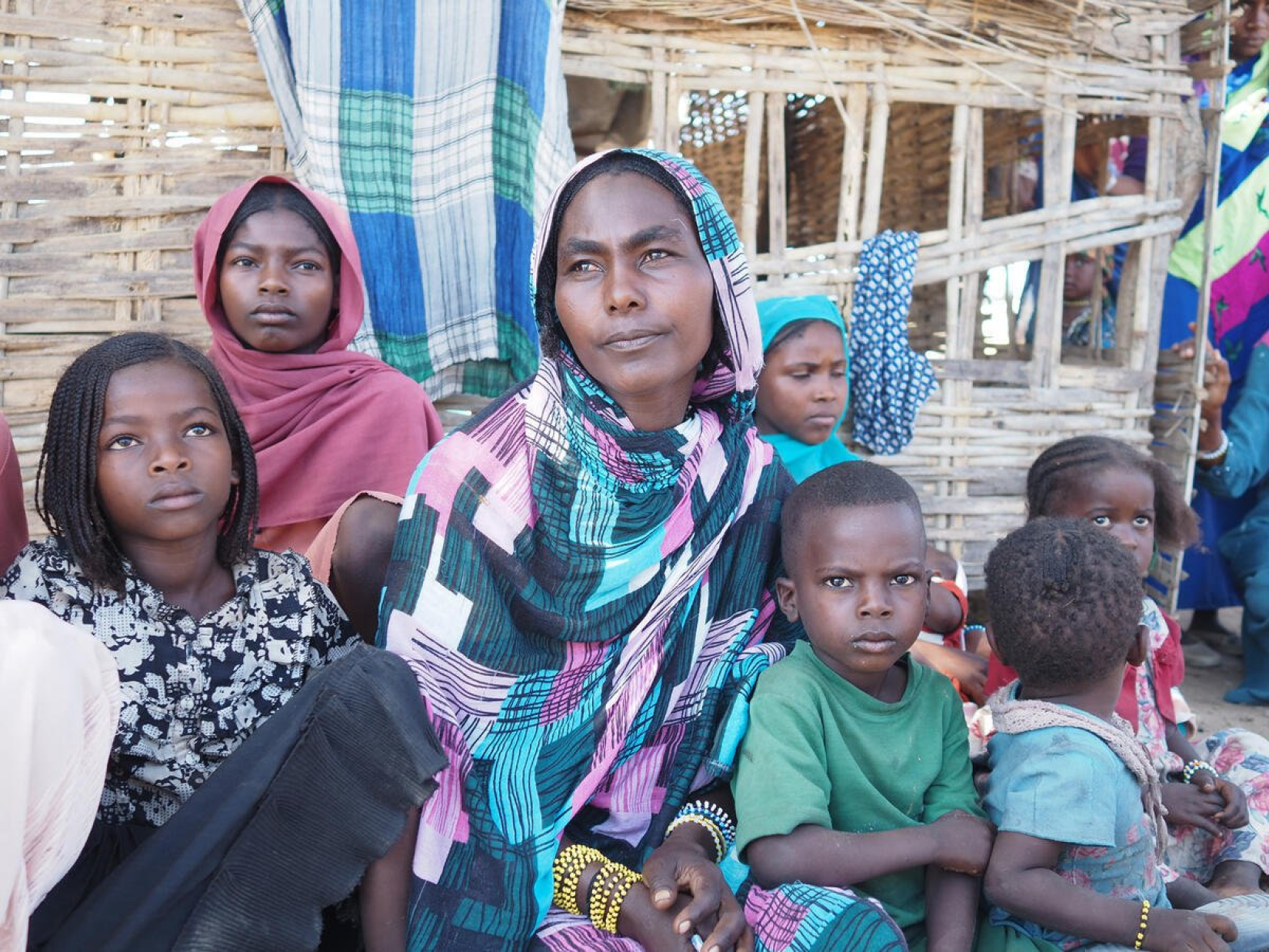Joint Press Release: UNHCR and WFP call for urgent support to address Sudanese refugee needs in Central African Republic
11 February 2025

Bangui, Central African Republic - UNHCR, the UN Refugee Agency and the UN World Food Programme (WFP) warn of an impending shortage of emergency aid to the growing number of Sudanese refugees in the Central African Republic (CAR) unless urgent funding of USD 14.8 million is secured imminently to support more than 30,000 refugees and their host communities in 2025.
Since the beginning of the Sudan crisis in 2023, the number of Sudanese refugees in CAR has surged, with an estimated 31,000 individuals seeking safety and assistance, particularly in the Vakaga prefecture. More than 17,000 individuals are in Korsi (Birao), while approximately 14,000 others are dispersed across other hard-to-reach prefectures. In 2024, the country saw a significant increase in the number of refugees, with arrivals rising by almost 90% compared to 2023. The Vakaga prefecture is one of the poorest in CAR, and an extremely isolated region with 46% of food insecured people and 89% of households in the Vakaga prefecture cannot afford healthy diets. “We are witnessing an unprecedented humanitarian crisis that requires immediate and sustained international support,” said Fafa Attidzah, UNHCR Representative in CAR. “The refugees need access to essential protection services and lifesaving assistance- action is critical now to prevent further suffering.”
Despite ongoing efforts by WFP, UNHCR, the Government of the Central African Republic, and partners to find sustainable solutions, refugees remain heavily reliant on humanitarian aid. Due to limited funding, Sudanese refugees in and out of the Korsi refugee settlement lack access to basic services and livelihood opportunities. The inadequate response to their situation leaves them highly vulnerable to protection risks, lack of shelter and education, and a heightened risk of food insecurity and malnutrition. In addition, pressure is mounting on already vulnerable host communities, straining limited resources that were scarce before the refugees arrived.
“Despite our dwindling resources, we cannot remain insensitive or inactive, especially as these food-insecure refugees rely on us for what is sometimes the only meal they have in a day. WFP food is a lifesaver for these vulnerable families,” said Aline Samu, WFP Deputy Representative and Head of Office in the Central African Republic. Without sufficient financial support, UNHCR will be unable to meet the minimum needs for protection and vital assistance to preserve human dignity, including providing necessities such as blankets, cooking utensils, solar lamps and hygiene kits, shelter, water and medical supplies.
Since the beginning of 2025, the WFP has been providing food assistance to nearly 20,000 Sudanese refugees in the Birao, Korsi, Kaga-Bandoro, Ndele, Pombole and Rafai areas. The WFP will be forced to reduce or halt food supplies to refugees, which could lead to severe food insecurity for these already extremely vulnerable populations. The situation will result in irreparable harm to refugees, affecting both their immediate survival and long-term prospects, and leading to potential conflicts with host communities over scarce resources. UNHCR and WFP call on the international community to mobilize financial support to respond to this crisis effectively and to better assist the Central African government in managing the situation.
For more information, please contact:
- UNHCR: Gloria Ramazani, External Relations Officer, ramazang@unhcr.org ; Tel: +236 74 14 78 92
- UNWFP: Antoine Hauzeur, Head of CAM, antoine.hauzeur@wfp.org ; Tel : +236 74 50 44 70






